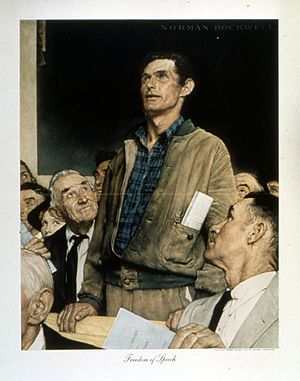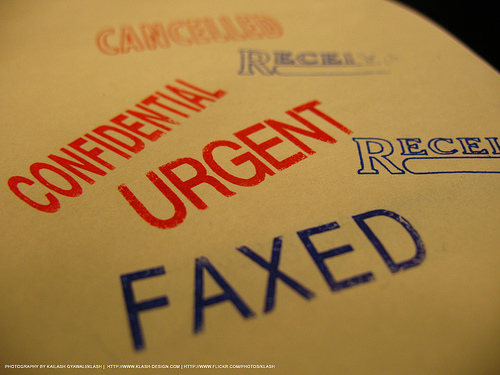February 6, 2017
The Surface Water Diversion Blame Game
According to the Bible, water is both the fountain of life and a destroyer by flood. Water naturally plots its own course, creating wetlands to store excess storm water. Human development, for better or worse, seeks to maximize the value of property and minimize land set aside for natural wetlands or artificial drainage purposes. The proximity of water can enhance or damage the value of real estate. For example, waterfront properties tend to fetch higher sale values. Sometimes neighbors will improperly channel water off their own land onto that of another in an effort to fend off unwanted surface water diversion. Lawyers and judges describe unwanted surface water as a “common enemy” because both neighbors seek to avoid it. The common law tradition developed a system of rules whereby judges can resolve disputes between neighbors over the reasonableness of surface water diversion.
Sometimes it is not a family or business that owns the uphill parcel that is diverting surface water. A property owner might find herself contending with a governmental or community association neighbor in a surface water diversion dispute. In a recent Southwest Virginia lawsuit, owner Consortium Systems, LLC sued two contractors, Lane Engineering, Inc. & W-L Construction & Paving, Inc. who constructed a sediment pond on a neighboring technology park owned by Scott County Economic Development Authority (“County EDA”). Rural counties like to build technology parks to attract out of town businesses to relocate there. Consortium alleged that the EDA’s contractors built the sediment pond without a proper outlet or outfall.
Owning property beside a public or private common area can be an advantage or a risk. Businesses want to locate themselves near parking, amenities and potential sources of customers or vendors. However, if a dispute arises between an owner and a governmental neighbor, the private party may find themselves facing additional legal obstacles. Sometimes governmental entities enjoy sovereign immunity, shortened lawsuit filing deadlines or additional notice procedures. Consortium tried to sue the contractors for negligence, trespass and negligent surface water diversion. The owner argued that the contractors should be liable to damage to neighboring properties because they faultily constructed the drainage facilities on the County EDA property. In his January 9, 2017 ruling on the contractors’ pretrial motions, Judge John C. Kilgore made findings illustrating an owner’s challenges to sue its neighbor’s contractors:
- Common Enemy Doctrine. Because surface water must go somewhere in developed areas, the common law tradition allows neighboring owners to “fight off” the “common enemy” onto neighboring parcels. Virginia, like many states, has an exception requiring surface water diversion to be done, “reasonably and in good faith and not wantonly, unnecessarily or carelessly.” Virginia courts find improper surface water diversion where the neighbor collects water into an artificial channel and redirects it onto someone else’s land.
- Sovereign Immunity. Virginia counties enjoy the sovereign immunity of the commonwealth. Municipal corporations are also entitled to sovereign immunity when exercising governmental functions. This immunity extends to contractors working for a governmental body. However, sovereign immunity does not protect the negligent performance of the government’s contractor. Judge Kilgore found the Economic Development Authority’s construction of the technology park to enjoy sovereign immunity without discussion in his opinion letter. Consortium’s negligence claims had been previously dismissed.
- Who is Responsible, the Neighbor or their Contractor? Judge Kilgore observed that the two defendants, Lane & W-K were working on behalf of the EDA. Generally speaking, the owner of a neighboring parcel is responsible for the acts of its representatives and contractors. The Court did not find authority for holding the neighbor’s contractor liable for the surface water diversion, in this situation.
The court previously dismissed Consortium’s claims for negligence as not being timely brought. In its January 2017 ruling, Judge Kilgore dismissed Consortium’s other claims, which were for trespass and diversion of surface water as barred by sovereign immunity.
The Consortium Systems, LLC v. Lane Engineering, Inc. case contains several surface water diversion takeaways in addition to the judge’s legal rulings. First, when flooding occurs, the suffering owner should investigate the causes and potential remedies for the drainage problem. Sometimes the answer is not obvious. In serious cases, this may require the assistance of an engineer or other expert. Second, all flooding problems should be addressed promptly before additional damage occurs. If a neighbor is to blame, they should be notified promptly. Third, the law may apply a standard of care that is different from what may appear as ground water diversion best-practices. The flooded owner or her attorney may need to consult HOA documents, covenants, deed restrictions, easements, county storm water management guidelines, state case law and other authorities to determine the parties’ relative rights and responsibilities.
Case Citation:
Consortium Systems, LLC v. Lane Engineering, Inc., 2017 Va. Cir. Lexis 2 (Lee Co., Jan. 9, 2017).
Photo Credit:
KevinsImages New 2016 drainage Juniper rd. via photopin (license)(does not depict any facts discussed in blog post)
January 13, 2017
Check Your Privilege, HOA
The attorney-client privilege is frequently misunderstood in the community associations context. When many owners request information, sometimes their board, board’s attorney or property manager asserts the attorney-client privilege. This may seem to obstruct their attempts to assess their property rights or how community funds are being spent. I recently had a conversation with a friend about an issue she raised at a HOA meeting. She asked the directors whether certain assessments were valid under the governing documents. The board consulted with their attorney, who answered them by e-mail. My friend suspected that the attorney advised the board that a judge would deem these assessments invalid. When asked, the board and their attorney refused to disclose the email, claiming attorney-client privilege (“ACP”). Since the board answers to the owners and the attorney works for the HOA, are the owners entitled to the attorney’s answering email? Does it make sense for any non-director owners to pursue copies of the attorney’s email?
In Virginia we have a court decision that addresses this issue that I will discuss. But first, let’s cover the basics. Anyone who deals with lawyers must understand how the ACP generally works. If an owner understands the ACP, she can more effectively pursue the information to which she is entitled and side-step unnecessary quarrels over confidentiality. This blog post will focus on the attorney-client privilege as applied by the courts in Virginia. The basic principles are similar in states across the country. Does this doctrine really allow boards to conceal important plans and communications in a shroud of secrecy? Not really, but it is often, baselessly asserted in many disputes, including HOA and condominium matters.
The purpose of the ACP is to encourage clients to communicate with attorneys freely, without fear of disclosure. This way attorneys can give useful legal advice based on the facts and circumstances known to the client. The Supreme Court of Virginia defines the ACP as follows:
Confidential communications between attorney and client made because of that relationship and concerning the subject matter of the attorney’s employment are privileged from disclosure, even for the purpose of administering justice . . . Nevertheless, the privilege is an exception to the general duty to disclose and is an obstacle to the investigation of the truth, and should be strictly construed.
The burden is on the party asserting the attorney-client privilege to show that it is valid and not waived. The privilege can easily be waived by disclosure of the communications to third parties. Waiver may be intentional or negligent, where the disclosing party failed to take reasonable measure to ensure and maintain the document’s confidentiality. Judges will consider waiver of privilege questions on a case by case basis. In general, the courts are reluctant to weaken the privilege by finding waiver in doubtful circumstances.
Contrary to popular belief, the privilege does not apply to every document or communication transmitted between an attorney and client. For example, if the client sends the lawyer corporate or business documents related to the facts of the case, those items would not be protected by the privilege by the mere act of transfer. It is quite possible that only the cover letter would be privileged. Generally, the privilege covers the seeking and delivery of legal advice.
Related to the attorney-client privilege is the “work-product doctrine.” The work product doctrine protects from disclosure the interview notes, office memoranda, internal correspondence, outlines, mental impressions and strategy ideas of the client’s lawyers prepared with an eye towards litigation.
When the client is an incorporated association and not an individual, questions arise as to which people function as the “client” as far as the privilege is concerned. Corporations can only act by means of their human representatives. This will often extend beyond the officers and directors of the corporation. Courts have found the privilege not waived when employees were privy to the communications. While the privilege is sacrosanct, it is narrow in scope and easily waived.
In Batt, et al. v. Manchester Oaks HOA, a group of owners challenged their board’s policy whereby parking spaces were assigned in a community where some townhouses had garages and others didn’t. Parking is a precious commodity. The plaintiff owners sought correspondence between the HOA’s leaders and their attorney. The owners asked the Circuit Court of Fairfax to order Manchester Oaks to produce the documents. They argued that the directors were fiduciaries of the owners and the suit asserted that the board acted inimically to the owner’s interests. In some other states, this is a judicially recognized exception to the ACP in some contexts. Judge Terrence Ney, who was highly respected within the local bar, declined to adopt the “Fiduciary-Beneficiary Exception” because that would “chill” communications between parties and their attorneys for fear the exchanges could be used against them in the future. I think he got this right. Properly understood, this does not infringe upon owners’ rights. Here’s why:
- Owners Need Boards to Act Competently. Owners need their boards to freely share their concerns with their attorney without fear that someone could later obtain the emails and use them against them. Community associations law is complex. For HOAs to work properly, boards need legal counsel to help them accomplish worthy goals while complying with the law and the governing documents. Owners need the HOA’s lawyer to tell the board what they can’t do, so that they can avoid doing bad things.
- The Director’s Fiduciary Duties Are Primarily Defined by the Governing Documents. If a fiduciary-beneficiary exception applies to a communication, that would be shown in the covenants, bylaws or perhaps a statute.
- The Board’s Lawyer is Not the Community’s Judge. When new owners visit HOA meetings and see directors defer to the association’s counsel on legal matters, this may lead to a misconception that the written opinions of the HOA’s lawyer are the “law of the land,” subject only to review by a judge. The opinions of the board’s attorney are simply her advice. Sometimes attorneys are wrong. Trial judges and appeals courts exist to make final determinations on contested legal disputes.
- “What Did the Board’s Attorney Advise” is Not the Best Question. This is really the most important point here. Requesting the HOA to disclose its attorney-client communications is not the best question to ask. Instead, the owner should ask the board to explain its authority to adopt or enforce a resolution. A HOA or condominium’s legal authority is public. It is written in a declaration, covenant, bylaw, statute, etc. The written legal authority and the official policy cannot be privileged. If the owner and board were to end up in litigation, sooner or later this would have to be spelled out in court. Chasing after what the attorney confidentially advised the board is not the direct path to solving the owner’s problem. If the board or its managers object on grounds of privilege when an owner asks them to point to the section in the governing documents that undergirds the policy, then the owner needs a lawyer of her own.
Ultimately the owners challenging the directors’ parking policy in the Manchester Oaks HOA case prevailed in Court, invalidating the board’s parking resolution. They didn’t need the attorney’s advice letter to achieve this. In other cases, owners don’t need to invade the board’s privilege, when it is properly invoked. However, it is very common for corporate parties to try to abuse the attorney client privilege in litigation. When someone invokes the attorney-client privilege in a HOA dispute, that is a good time to retain qualified legal counsel. If a party doesn’t back down when called out on an improper invocation of privilege, the dispute can be put before a judge. This “Check Your Privilege, HOA” blog post is the first in a series about how the attorney-client privilege is used and misused in the community association context. In future installments, I plan on discussing a couple hot topics. Does the Property Manager qualify as the client for purpose of the ACP or is it waived if the manager participates in the discussions with the attorney? Are the HOA’s lawyers’ billing statements protected from disclosure to the owners by the ACP or are they fair game?
For Further Reading:
Batt v. Manchester Oaks Homeowners Ass’n, 80 Va. Cir. 502 (Fairfax Co. 2010)(Ney, J.)(case reversed on appeal on other issues).
Walton v. Mid-Atlantic Spine Specialists, P.C., 280 Va. 113 (2010).
Michael S. Karpoff, “The Ethics of Honoring the Attorney-Client Privilege” (CAL CCAL Seminar Jan. 31, 2009)
Photo Credit:



